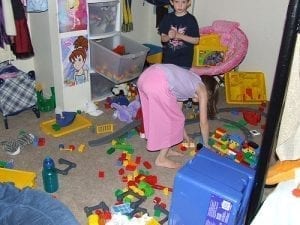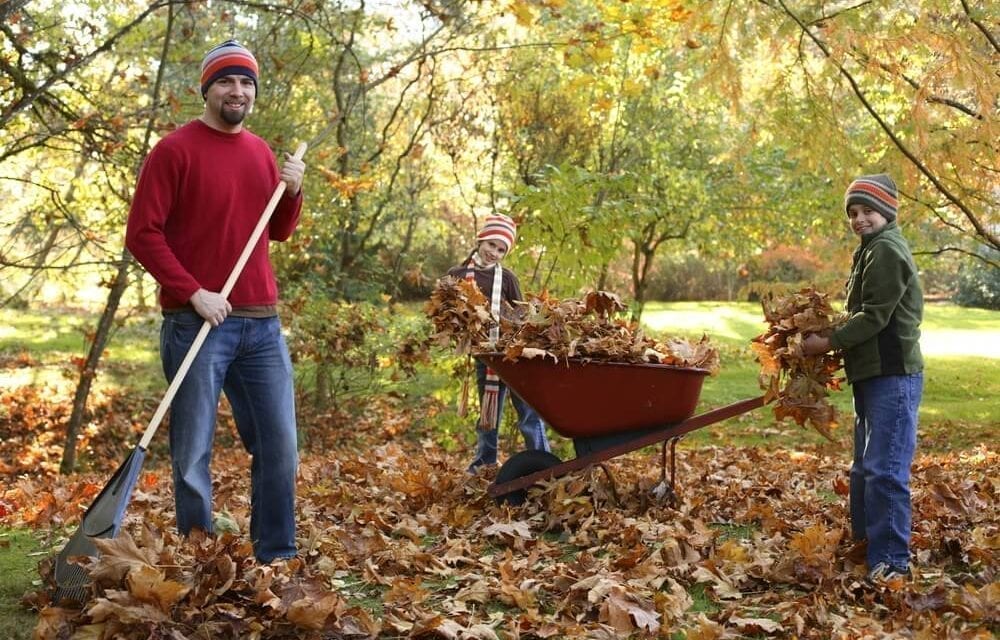 One of the most common mistakes parents make in the current generation of parenting is that they feel guilty for the amount of time they spend out of the home, often with both parents working. They are, therefore, reluctant to ask their children to take on responsibility around the home, and feel excessively guilty if their children complain.
One of the most common mistakes parents make in the current generation of parenting is that they feel guilty for the amount of time they spend out of the home, often with both parents working. They are, therefore, reluctant to ask their children to take on responsibility around the home, and feel excessively guilty if their children complain.
Yet, asking children to accept some responsibility around the home is the only manner in which children learn to assume the daily responsibilities involved in participating in the community of a family. This is real-life preparation and, in my view, an essential skill that children need to be prepared for life.
Often these same parents will attempt to teach their teenagers to begin to take some responsibility around the home, such as cleaning their room. What they quickly learn is that it is extremely difficult to start new habits with teens if they have not learned those habits during their younger years. It is critical to understand that simple participation by your children in the household allows them to learn (in small, but important ways) that many jobs keep a home running. Their jobs may start small, but their contribution can increase as the years go by.
So, how can you effectively teach your children to become responsible around the home? Here’s the short-cut, the essentials:
Three Essential Principles That Help Teach Responsibility
Principle One: Determine Responsibilities.
Make a decision about which chores or responsibilities your kids need to take on…and map it out for each day of the week. You can, of course, develop this with your kids…trying to work with their preferences, if possible. However, even if they don’t agree, make a firm decision about daily responsibilities.
Write it down and have a weekly plan. Hang it up where everyone can see. Have everyone sign this. Then make your expectations clear about when and how these responsibilities are to be completed.
Principle Two: Work, then play.
 When kids get home, they must understand that their “WORK” comes first, and their work is really “homework.” After homework, make clear to your children that their next is to complete their chore for the day. This is to be completed before they play, get on the computer, talk to their friends, go outside, or turn on the TV.
When kids get home, they must understand that their “WORK” comes first, and their work is really “homework.” After homework, make clear to your children that their next is to complete their chore for the day. This is to be completed before they play, get on the computer, talk to their friends, go outside, or turn on the TV.
The notion here is simple. Success in life will be naturally rewarding if your children learn a simple formula: Work, then play. Play (after work is done) naturally and effortlessly rewards the hard effort and breeds successful habits.
Rather than focusing your efforts on trying to force the kids to take care of their “work”…simply allow your children to learn from the consequences of their choices. In this case, you focus your energy on controlling the “playtime” and do not permit play…until the work is done! This is magic…when you don’t battle over the “work” and instead you limit play…until work is done. This gives you tremendous leverage if you remain consistent in the “WORK…THEN PLAY” approach.
You can read about this concept in many of the articles on this website. You will also learn more about this magical concept in these special programs on:
- Homework Habits Made Easy
- The Monday Bag (teaches kids to pick up their stuff without a battle!)
- Morning Routines Made Easy
- Educational Success (Live DVD recording of Dr. Cale)
Principle Three: Invest your energy in what you value… while it’s happening.
 In other words, give attention to your children while they are working and completing the chore, and engage them in a brief exchange. That’s right. Don’t wait until the chore is done, or it’s an hour later.
In other words, give attention to your children while they are working and completing the chore, and engage them in a brief exchange. That’s right. Don’t wait until the chore is done, or it’s an hour later.
To shape your child’s behavior, you need to catch them while they are doing the chore. This is a powerful and essential necessity to developing your influence as a parent. This is the hidden secret that is ignored by almost all parents; yet, the research reflects that learning to strategically plan how you will engage your children is the single most powerful set of skills you can master.
You may want to check out the article on Messy Rooms, to get a better sense of how this applies to a practical, everyday struggle.
As is emphasized in several other places on my website, it is essential to recognize that these strategies take time (meaning a few weeks, not a few hours). If you are a parent who embraces a new idea, then aggressively pursues that for a week or so, and then begins to lose track, then this strategy will not work. My suggestion: Don’t even start, unless you are committed for the four to eight weeks that it takes to create and nurture healthy habits.
If you do follow these recommendations, you will see dramatic improvements in the level of responsibility that your children accept in the home. Family life will be more effortless and less of a strain for everyone. Perhaps most importantly, you will be on your way to preparing your children for the ultimate goal: full participation in the game of life!
Read more about the specifics of these strategies by exploring these articles:
• Handling Money
• Messy Rooms
• Homework habits
• Chores and responsibilities
Each one will provide greater details, and give you a sense of how you can nurture and promote responsible habits in your home. If you want to learn how to about to apply these principles to your home, consider purchasing one of my comprehensive parenting solutions.














